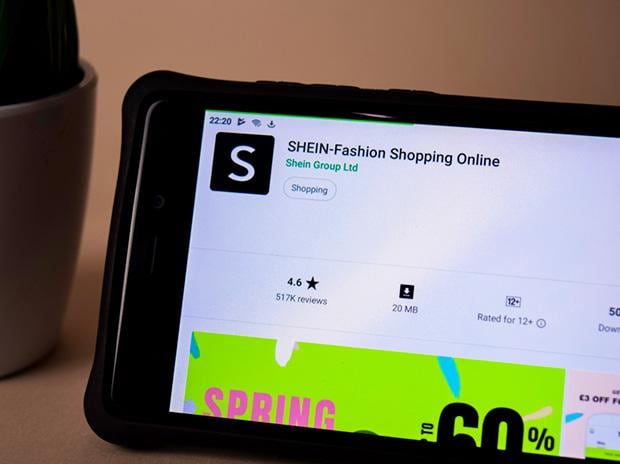Shein is coming back to India. Here’s why it was banned in the past
More than two years after the Shein app was banned in India, Reliance is set to bring Chinese fashion stores back to the country. Aimed at young women, the fast fashion retailer offers trendy and affordable clothing and accessories. As the company re-enters India, here’s everything you need to know about Shein, its ban and its re-entry into the Indian market.
Shein, the brand
SHEIN is an international online fashion retailer, founded in October 2008 by Chris Shaw. The company is based in China and operates primarily through its website and mobile application. Shein offers a wide range of trendy clothing, accessories, and other fashion items at affordable prices that attract a large customer base on a global level.
The company was initially considered a company working in the field of express shipping. However, in 2012 it started to build its own supply chain system and became a retailer.
According to the Wall Street Journal (WSJ), Shin has a total valuation of $66 billion after the latest funding round. The Wall Street Journal reported Wednesday that this is less than a third of its value in the previous year.
Shein’s website claims that the company’s branded products mainly come from the United States, India, Brazil, and Australia, making these markets attractive to the company.
Shein was banned in India along with 58 other apps in June 2020 by the Government of India. The ban on Shein and other Chinese apps followed a border dispute between India and China in mid-2020, during which bilateral relations worsened.
The root cause of the border issues was the disputed 3,440-kilometer border, known as the Line of Control, where Indian and Chinese soldiers met face to face at different locations.
The Indian government’s official position on banning these apps was based on concerns that these platforms were involved in activities harmful to India’s sovereignty, integrity, defense and security.
The ban was implemented under Section 69A of the Information Technology Act, which gives the government the power to block access to certain websites and services in the interests of national security.
In addition to Shein, other Chinese apps banned in India include popular apps like TikTok, UC Browser, CamScanner, WeChat, Clash of Kings, and more.
The ban affected a wide range of app categories, including social media platforms, utility apps, gaming apps, and e-commerce platforms. Since June 2020, India has blocked 270 Chinese apps as they were cited as “harmful” to India’s sovereignty, integrity and national security.
Despite the ban on the app, Shein products continued to be sold through other online retailers such as Amazon.
Although Shein has gained a reputation for its fast-paced style and competitive pricing, it has faced numerous controversies throughout its existence, ranging from environmental and health issues to offensive imagery used in its designs. These are some of the biggest ongoing controversies the company faces.
Prior to its ban in India, Shein faced concerns about data privacy and security. There have been allegations that the app collected user data and shared it with third parties without explicit consent, raising concerns about the protection of personal information, according to media reports in June 2020.
In 2018, the company had a data breach and lied about how many accounts were compromised at that time. According to a BBC News report in October 2022, 39 million user information was stolen, and Zoetep, the parent company of Shein, was fined $1.9 million by US authorities.
Intellectual property infringement
AirWair International, maker of Dr Martens shoes, has filed a lawsuit ruling that Shein not only knowingly made fakes but also used images of authentic Dr Martin shoes on its website, listed under the name “Martin boot,” the Financial Times reported. .
In March 2021, Fashion Law, an American fashion law journal and media platform, reported on a Ralph Lauren trademark infringement and unfair competition lawsuit against Sheen for exploiting the brand’s “real reputation” to sell “confusingly similar” clothing.
In July 2022, Reuters reported Mexico’s concerns about Shin’s use of the Mayan design, stating that it was “deeply saddened” by the “plagiarism”. The designs were promptly removed from the company’s website.
Many designers and small brands have also complained on social media, sharing side-by-side photos of their designs with Shein. This is likely to continue as the company’s popularity lies in selling cheap alternatives to trendy fashion items.
forced labor allegations
In 2021, an investigation by Public Eye found that working conditions in Shein violated Chinese labor laws by having employees work 75 hours a week.
According to a Reuters report in August 2021, the company also violated anti-slavery laws in Australia and breached the 2015 Modern Slavery Act in the United Kingdom.
On May 2nd of this year, IANS reported that a group of lawmakers from the United States had called for an investigation into the Chinese fast-fashion brand over allegations of forced labor for the Uighurs, an ethnic group in China.
Shein flatly denied allegations against human rights abuses, stating that they have “zero tolerance for forced labour” for the BBC and adding that they are committed to “respecting human rights and adhering to local laws and regulations in every market in which we operate”.
After three years of ban, the retailer is returning to the Indian market with its partnership with Reliance Retail. Shein will have access to the sourcing capabilities, warehousing and logistics infrastructure of Reliance Retail and access to its portfolio of online and offline stores.
While Shein was founded in China, it is now headquartered in Singapore. So India no longer considers it a Chinese entity.
Since its launch, several startups like Urbanic have started providing more affordable trendy clothes to Indian youth, so the brand may face some competition this time around.
